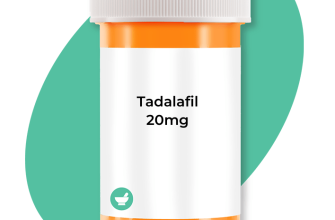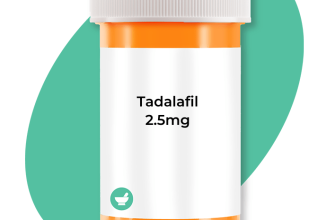Diflucan (fluconazole) is an antifungal medication frequently prescribed to treat various fungal infections, including candidiasis and cryptococcal meningitis. For those experiencing persistent yeast infections or systemic fungal issues, consulting with a healthcare provider about a Diflucan prescription can offer effective relief.
Dosage typically varies based on the type and severity of the infection. For vaginal candidiasis, a single dose of 150 mg is often sufficient. More complex infections, however, may require a longer course, sometimes involving daily doses of 200 mg to 400 mg for several weeks. It’s crucial to adhere to the guidance provided by your healthcare professional to ensure optimal efficacy and reduce the risk of resistance.
While Diflucan is well-tolerated by many, being aware of potential side effects is important. Common reactions include headache, nausea, and abdominal pain. Severe allergic reactions, though rare, can occur. Always communicate any unusual symptoms to your prescriber promptly.
In preparation for a prescription, share your complete medical history with your healthcare provider, especially regarding liver function and any current medications. This information is vital to avoid interactions that could compromise treatment.
- Diflucan Drug Prescription
- Indications for Use
- Monitoring and Follow-Up
- Understanding Diflucan: Composition and Pharmacology
- Indications for Prescription: When to Use Diflucan
- Dosage Guidelines for Diflucan: Adult and Pediatric Dosing
- Potential Side Effects and Drug Interactions with Diflucan
- Patient Considerations: Contraindications and Precautions
- How to Monitor Treatment Effectiveness of Diflucan
Diflucan Drug Prescription
When prescribing Diflucan (fluconazole), healthcare providers typically consider the specific type of fungal infection, the patient’s medical history, and potential drug interactions. Dosage usually ranges from 150 mg for a single dose in cases of vaginal candidiasis to daily doses of 400 mg or more for systemic infections. Adjustments may be necessary for patients with renal impairment.
Indications for Use
| Indication | Usual Dosage |
|---|---|
| Vaginal Candidiasis | 150 mg single dose |
| Oropharyngeal Candidiasis | 200 mg on day 1, then 100 mg daily |
| Esophageal Candidiasis | 200 mg on day 1, then 100-400 mg daily |
| Systemic Candidiasis | 400-800 mg daily |
Monitoring and Follow-Up
Regular monitoring of liver function tests is important during treatment. If abnormal levels occur, consider discontinuation or dose adjustment. Additionally, assess patient response to treatment at follow-up visits, adjusting therapy as necessary based on clinical improvement or microbiological results. Educate patients on potential side effects, including nausea, headache, and abdominal pain, and advise them to report any severe reactions.
Understanding Diflucan: Composition and Pharmacology
Diflucan contains the active ingredient fluconazole, a synthetic triazole antifungal. This compound primarily targets fungal infections by inhibiting the synthesis of ergosterol, a crucial component of fungal cell membranes. As a result, the integrity of the fungal cell is compromised, leading to cell death.
The pharmacokinetics of fluconazole highlight its rapid absorption, with peak plasma concentrations achieved within one to two hours after oral administration. This drug is highly bioavailable, with approximately 90% of the dose reaching systemic circulation. The distribution of fluconazole is wide, penetrating body tissues and fluids, including the central nervous system, which makes it effective against cryptococcal meningitis.
Diflucan demonstrates a relatively long half-life of about 30 hours, allowing for once-daily dosing, which enhances patient compliance. The metabolism of fluconazole predominantly occurs in the liver, although it is not extensively metabolized. Most of the drug is excreted unchanged in the urine, making renal function assessment vital before prescribing.
While generally well-tolerated, fluconazole may cause side effects such as nausea, headaches, and abdominal pain. Rarely, more severe reactions, including liver dysfunction and QT interval prolongation, can occur. Monitoring liver enzymes is advisable, particularly in long-term therapy.
In summary, Diflucan’s unique composition and pharmacological properties make it a reliable choice for treating various fungal infections, especially in immunocompromised patients. Always consider individual patient factors and potential drug interactions when prescribing this medication.
Indications for Prescription: When to Use Diflucan
Prescribe Diflucan primarily for the treatment of fungal infections, particularly those caused by Candida species. It effectively targets various conditions, leading to significant relief and recovery.
Consider using Diflucan in the following situations:
- Candidiasis: Recommended for oropharyngeal, esophageal, and systemic candidiasis.
- Vaginal Yeast Infections: Useful for recurrent vaginal yeast infections, especially when conventional treatments fail.
- Cryptococcal Meningitis: Acts as a crucial component in managing this serious fungal infection, particularly in immunocompromised patients.
- Onychomycosis: Indicated for fungal nail infections, aiding in faster and more effective treatment compared to topical agents.
Monitor patient response carefully, seeking alternatives or supportive therapies if symptoms persist or worsen. Consider patient history and condition severity when determining dosage. Adhere to clinical guidelines for optimal outcomes.
In summary, Diflucan serves as a key option for a range of fungal infections. Proper assessment ensures effective use and patient recovery.
Dosage Guidelines for Diflucan: Adult and Pediatric Dosing
For adults, the typical initial dose of Diflucan (fluconazole) for fungal infections is 150 mg for a single dose when treating uncomplicated vulvovaginal candidiasis. For more severe infections, such as systemic candidiasis or cryptococcal meningitis, the starting dose may increase to 400 mg on the first day, followed by 200-400 mg daily depending on the severity and response to treatment.
Pediatric dosing varies based on the child’s weight. For children aged 4 weeks to 17 years with candidiasis, the usual loading dose is 6-12 mg/kg, not exceeding 400 mg daily. Maintenance doses range from 3-12 mg/kg daily, tailored to the infection’s severity.
Always consider the patient’s renal function, as dose adjustments may be necessary for those with compromised kidney function. In cases of renal impairment, reduce the frequency of dosing based on the creatinine clearance.
Monitor the patient’s response closely throughout treatment and adjust dosages as needed, ensuring safety and effectiveness in achieving therapeutic goals. Consult a healthcare provider for specific conditions and individualized dosing regimens.
Potential Side Effects and Drug Interactions with Diflucan
Patients using Diflucan (fluconazole) should be aware of potential side effects, which can include headache, dizziness, gastrointestinal disturbances such as nausea and diarrhea, and skin reactions. Some individuals may experience an allergic reaction, which could manifest as rash, itching, or swelling. It’s critical to monitor these symptoms and report any severe or persistent issues to a healthcare provider.
Drug interactions may complicate the use of Diflucan. Caution is advised when combining it with anticoagulants like warfarin, as it can enhance their effects, increasing bleeding risk. Additionally, mixing Diflucan with certain anticonvulsants, such as phenytoin or carbamazepine, may alter their effectiveness or increase toxicity levels.
Other medications that may interact negatively with Diflucan include some antidepressants, non-steroidal anti-inflammatory drugs (NSAIDs), and various medications for heart conditions. Always provide your healthcare provider with a complete list of current medications, including over-the-counter drugs and supplements, to minimize risks.
Individuals with liver disease, kidney disorders, or a history of hypersensitivity to azole antifungals should use Diflucan with caution. Regular monitoring of liver function tests may be necessary for those on prolonged therapy.
A safe approach involves consulting with a healthcare professional before initiating or discontinuing any treatment and reviewing the potential side effects and interactions associated with Diflucan. A proactive dialogue can help manage any risks and ensure effective treatment.
Patient Considerations: Contraindications and Precautions
Before starting Diflucan, review the following contraindications and precautions to ensure safety and effectiveness.
- Allergy to Fluconazole: Avoid using Diflucan if you have a known hypersensitivity to fluconazole or any component of the formulation.
- Pregnancy and Breastfeeding: Discuss potential risks with your healthcare provider. Fluconazole may cause harm to the fetus in high doses, especially during the first trimester.
- Severe Liver Disease: If you have a history of liver dysfunction, inform your doctor. Dosage adjustments or alternative treatments may be required.
- Heart Conditions: Fluconazole can cause QT prolongation; individuals with a history of arrhythmias should be monitored closely.
Additional precautions include:
- Drug Interactions: Be aware of potential interactions with medications such as warfarin, certain antiretrovirals, and other drugs metabolized by cytochrome P450. Provide a full list of your current medications to your healthcare provider.
- Kidney Function: Patients with compromised renal function may require dosage adjustments. Regular monitoring of renal parameters is advisable while on therapy.
- Autoimmune Diseases: Inform your doctor if you have any autoimmune conditions, as they may affect how you respond to treatment.
Regular follow-up visits are essential to assess the effectiveness of the treatment and monitor for any adverse effects. If you experience symptoms such as jaundice, rash, or persistent nausea, contact your healthcare provider immediately.
How to Monitor Treatment Effectiveness of Diflucan
Regular follow-up appointments are important to assess how well Diflucan is working. Schedule these visits to allow the healthcare provider to evaluate symptoms and adjust treatment if necessary.
Observe and document any changes in symptoms. Keep a daily log of any improvements or worsening conditions related to your health issue. This information provides valuable insights during consultations.
Conduct laboratory tests as recommended by your doctor. Blood tests can help assess liver function and overall health. For antifungal treatment, fungal cultures may also be needed to determine if the infection resolves or persists.
Take note of any side effects experienced during treatment. Report these to your healthcare provider to ensure proper management and to assess whether the benefits outweigh any adverse reactions.
Maintain open communication with your healthcare provider. Discuss any concerns or questions regarding the treatment to ensure a reliable assessment of its success.
Monitor overall well-being. Pay attention to energy levels, appetite, and any other physical or emotional changes. A holistic view of your health can provide additional context for treatment effectiveness.










